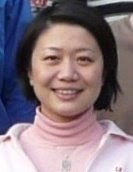
Third Workshop on Story-Telling and Educational Games (STEG'10)
December 8-10, 2010, Shanghai, China
URL: http://www.prolearn-academy.org/Events/steg10In conjunction with the 9th International Conference on Web-based Learning (ICWL 2010)
Stories and story-telling are cultural achievements of significant relevance even in modern times. Nowadays, story-telling is being enhanced with the convergence of sociology, pedagogy, and technology. Recently, computer gaming is also deployed for educational purposes and has proved to be an effective approach to mental stimulation and intelligence development. Many conceptual similarities and some procedural correlation exist between story-telling and educational gaming. Therefore these two areas can be clubbed for research on Technology Enhanced Learning (TEL). Many facets of story-telling and educational gaming emulate real life processes, which can be represented either as complex story graphs or as interleaved sub-problems.
While the integration of learning and gaming provides a great opportunity, several motivational challenges must also be addressed to ensure successful realization. Non-linear digital stories are an ideal starting point for the creation of educational games, since each story addresses a certain problem, so that the story recipient can benefit from other users’ experiences. This leads to the development of more realistic stories providing the kernel for non-trivial educational videogames. These stories cover the instructional part of an educational game, while the game adds the motivation and engagement part.
This workshop aims at bringing together researchers, experts and practitioners from the domains of non-linear digital interactive story-telling and educational gaming to share ideas and knowledge. There is a great amount of separate research in these two fields and the celebration of this workshop will allow the participants to discover and leverage potential synergies.
Workshop topics
- Theories in story-telling and games
- Story and game design paradigms for Web-based Learning
- Augmented story-telling and gaming
- Story-telling and educational gaming with social software
- Mobile story-telling and educational gaming
- Cross-media/transmedia story-telling and gaming
- Computer gaming for story-telling (Game design for narrative architectures)
- Multimedia story and game authoring
- Story-telling and educational gaming applications
Registration
Scientific researchers and industry partners within the story-telling and educational gaming domain are invited to participate in STEG'10. Please use the ICWL10 conference website to register:
http://www.hkws.org/conference/icwl2010/registration.html
Early bird registration: Nov 15, 2010
Submissions
Authors are invited to submit original unpublished research as full papers (max. 10 pages) or work-in-progress as short papers (max. 5 pages) according to the Springer LNCS format (http://www.springer.com/lncs). For camera-ready format instructions, please see "For Authors" instructions at http://www.springer.de/comp/lncs/authors.html. All submitted papers will be peer-reviewed for originality, significance, clarity and quality. Accepted papers will be published online as part of the CEUR Workshop proceedings series. CEUR-WS.org is a recognized ISSN publication series, ISSN 1613-0073.
To submit your paper please use the STEG submission website hosted at easychair: http://www.easychair.org/conferences/?conf=steg10
Important dates
Paper Submission: September 24, 2010
Notification of acceptance: October 22, 2010
Camera Ready Submission: November 12, 2010
Workshop date: December 8-10, 2010
Organisers
Yiwei Cao, RWTH Aachen University, Germany
Emmanuel Stefanakis, Harokopio University of Athens, Greece
Stephan Lukosch, Delft University of Technology, Netherlands
David Farrell, Glasgow Caledonian University, UK
Dominik Renzel, RWTH Aachen University, Germany




